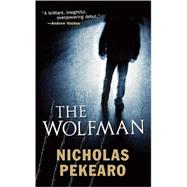
NICHOLAS PEKEARO was a young, prolific writer who left the world too soon. While volunteering as an NYPD Auxillary Police Officer, he was killed in the line of duty, in the very neighborhood he grew up in, New York City's Greenwich Village. The Wolfman is his first published novel.
The New copy of this book will include any supplemental materials advertised. Please check the title of the book to determine if it should include any access cards, study guides, lab manuals, CDs, etc.
The Used, Rental and eBook copies of this book are not guaranteed to include any supplemental materials. Typically, only the book itself is included. This is true even if the title states it includes any access cards, study guides, lab manuals, CDs, etc.